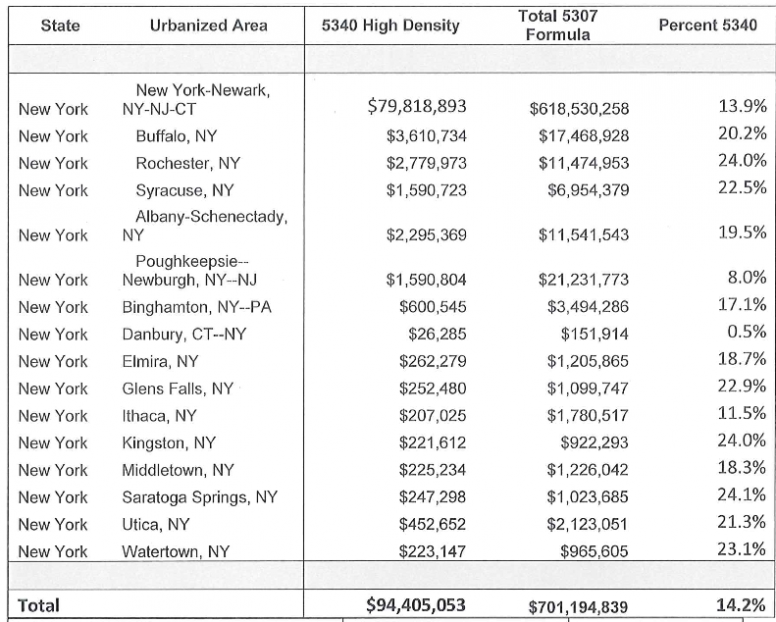Last week, the U.S. House of Representatives approved a $325 billion transportation bill–that is, after a flurry of votes on nearly 270 amendments. One of those amendments, which passed by a hastily-called voice vote, can be summed up quite simply: robbing Peter to pay Paul.
By tacking this amendment onto the House bill, Representative Jaime Herrera Beutler secured additional funding for her constituents in the Portland suburb of Clark County in southwestern Washington State. That money would aid C-TRAN, the county’s transit agency, to do what many transit agencies across the county desperately need to do: upgrade aging fleets and improve service.
But there’s a catch: this is not “new” money that Representative Herrera stumbled upon. The allocation of funds was achieved by effectively dismantling the 5340 program–also known as the Growing States and High Density States Formula Program. Since its establishment in 2005, this program distributed $272 million annually to the seven densely populated states—Massachusetts, Connecticut, Rhode Island, New Jersey, Delaware, Maryland, and New York—and the District of Columbia that constitute the heavily-urbanized Boston-Washington Corridor. Eligibility for the program requires a state to have more then 370 persons per square mile.
These seven states and D.C. are home to 56.5 million people or 18 percent of the nation’s entire population, and in 2014 accounted for 52.6 percent of all transit riders in the United States. The dense northeast corridor region, which includes portions of these eight jurisdictions, generates roughly 20 percent of the nation’s entire gross domestic product.
If enacted in the final federal highway bill, the amendment would dump the funds into a new and entirely discretionary Competitive Bus Grant program controlled by U.S. Department of Transportation to be distributed nationwide. Defunding the High Density States program would cut $1.6 billion worth of funding over the next six years for the seven states and D.C. The losses just within the tri-state region would be enormous: each year, Connecticut would lose $25 million, New Jersey would lose $50 million, and New York would lose $100 million.
For smaller systems, like Centro in Syracuse, NY which earlier this year already tackled a $5 million deficit, this amendment would translate into nearly 20 percent fewer federal dollars–dollars already incorporated into next year’s budget.
Luckily, legislators are already fighting back, scrambling to avoid a hit to transit funding that would inevitably lead to service cuts and fare hikes while jeopardizing transit jobs.
The House and the Senate hope to negotiate a final federal infrastructure funding plan before the Highway Trust Fund expires on November 20.



[…] Last-Minute Add-on to House Transpo Bill Robs Northeast Transit to Pay Suburban Portland (MTR) […]
[…] in funding to some of the big transit agencies in the Northeast in particular, according to the Tri-State Transportation Campaign. It’s not clear whether the amendment will survive conference […]
[…] U.S. Senators Cory Booker (NJ) and Tom Carper (DE) and U.S. Representative Frank Pallone Jr. (NJ) — Senators Booker and Carper led 26 other senators to urge the House-Senate transportation bill conferees to maximize annual investment by shortening the bill’s authorization period. Representative Pallone called on Congress to reject the Herrera Beutler amendment, which, if enacted, would cut $1.6 billion in funding from the transit-dense Northeast. […]